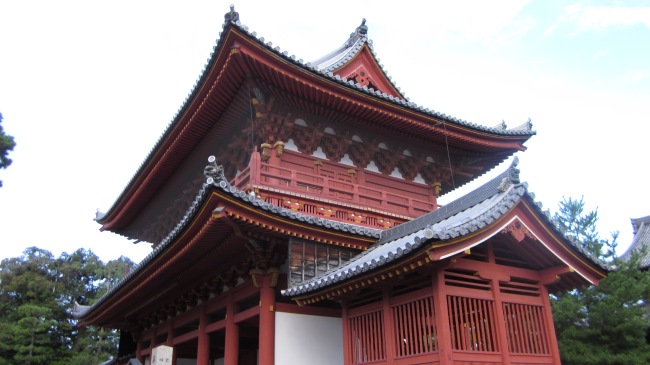On Freedom (Reaction vs. Response)
Freedom can be discussed at many different levels, but in this inquiry, we shall be discussing the nature of psychological freedom. Now, most people say they want freedom, but what they really want is license, that is, the “freedom” to do whatever they want. Is that really freedom? Let us inquire and see if there is such a thing as psychological freedom.
In my previous posts, we have taken up the fact of conditionings. That is, since our birth we have been conditioned by our parents, schools, religions, politicians, and other influences of society. These conditionings set up parameters for how to think, act, behave, what to like and not like, and how to process experience in our life in order to conform to the same mental patterns of the culture. Now, can such a mind that is operating based on conditioned patterns that one is unaware of be free? For example, if someone hurts your ego, insults you, slashes your pride, what do you do? Many of us would react with some negative remark about the other person perhaps, and some of us would restrain ourselves maybe because we’ve been told to have self-control. We’re not discussing here what is the right or wrong answer, we are simply using this scenario to look at psychological freedom; I’m sure you can think of many other examples. In either of these cases, if one is reacting to the person, based on our patterns of mind we have been conditioned into, is one engaging in this scenario with psychological freedom? Perhaps this is not a very good example, but the point is: if we react, aren’t we being controlled by some initial action? That is the definition of reaction isn’t it? An action that comes about as a result of some initial stimulus.
Therefore, as Jiddu Krishnamurti once said, “there is no freedom in reaction.” And that is how the vast majority of us go through life, just reacting to stimuli, reacting to experiences that come across our path. If one is all the time just reacting to things, we are merely passive victims of our experience. Can such a life really be the extent of living? Is that living? Our conditionings, which define and shape how we function in the world, give us established patterns as to how one ought to judge and react to experiences. But if we’re unconsciously operating from these mental patterns, there is no freedom in our action. In fact, there is no creative action or appropriate response at all, for creative response requires a mind that is not limited or blinded by any conceptual imprisonment. Such a mind encounters experience in the present moment, it sees what is, and does not process experience through the filter of conditionings.
Is this making sense? Let me summarize: Our mental habits, which have been instilled in us since birth, lay out the so-called “appropriate” or “right” way to think about and experience events in our life, whether major or minor. We are inquiring whether there is any psychological freedom in this or if there is such a thing. If we look at examples in our own life, it becomes clear that we are reacting to stimuli happening to us based on these mental habits. And reaction, as we have said, is not free; firstly because it depends on an initial action, and secondly, because it stems from thought, memory, and conditionings, which are based in the past.
In previous posts, I have discussed that we can rehabilitate our mind through non-judgmental awareness and observation of our reactions and fears in order to understand and dissipate our conditionings. Now, many of us will be tempted to ask how; how does one do this? How does it work? The moment you ask the how question, you are no longer interested in understanding or inquiry, you want a method, a system, a practice, something you can depend on to help you so you don’t have to go through the work of finding out or understanding the process yourself; you just want an answer, you’re no longer interested in the question. Either that, or you doubt such a thing is possible without giving it any thought for yourself, so you want someone else to provide you with an answer that you can argue with; in that case, you are no longer interested in inquiry, and communication between us has broken down. This is not a mono-centric debate (or an egologue) between your position and my position and one trying to convince the other of being right. This is an inquiry, a dialogue, which requires openness, attentiveness, curiosity, and interest in understanding.
Jiddu Krishnamurti also said, “there is no such thing as freedom of thought.” Wherefore? Because not only is thought of the past and based on memory, but it is limited to whatever conditioning/framework one is using to process experience. Therefore, our conditionings are a conceptual imprisonment aren’t they? Those patterns of thought came from others, not from ourselves, and if we’re just repeating those words, those actions, those patterns, without any critical inquiry, awareness, or experience of our own, aren’t we just secondhand, mechanical human beings? So what we are discovering here is that if we wish to have psychological freedom, it requires stepping out of our conceptual imprisonment.
Now, if we can in fact become aware of our reactions and conditionings and rehabilitate our mind, would this not lead to psychological freedom? If we can encounter our experiences in the moment, and see what is, without processing it through the filter of our conditioned patterns of mind, we can respond. Response is not reaction. Response is in the moment; it is pure action coherent with what is, and not dependent on an initial stimulus. The event and the action are interconnected, are coterminous. We can encounter the event as it is, rather than the image constructed in our mind based on the past. For more on this, please refer to the post:
On Relationships:
https://jasonkunen.wordpress.com/2013/10/29/on-relationships-encountering-others-in-the-moment/
and you may also be interested in watching my youtube video on Meeting Each Other in the Moment (which was made quite some time ago and by no means professionally done, but it gets the point across – I was still discovering how to use Youtube and speaking to a camera instead of an audience, so be easy on me):
Thus, response is creative, as it is not confined by conceptual boundaries. It is like a Zen kōan. Think of the martial artist. If she reacts to an attack, she must think about what to do, and then take action, but it is too late. But if she responds to the opponent, it is like a dance; she flows and takes the appropriate and necessary action to stop the attacker. Therefore, if we are at all interested in psychological freedom, we must become aware of our conditioned habits of mind and our reactions. This awareness will allow us to rehabilitate our mind so that we can live and respond in a creative, attentive, open, presencing manner to everything we experience. We no longer are victims of life’s experiences or sufferings, but become ((R-evolutionary co-creators)) of a new humanity guided by compassion, wisdom, awareness, and understanding.
If you find this or other posts/links here to be helpful, I ask you to please share with others whom you think would be interested. I would very much appreciate your support. Thank you!
Other Links:
About: https://jasonkunen.wordpress.com/about/
Other Posts/Home Page: https://jasonkunen.wordpress.com
Link to my book, Meditations on Zen and Martial Arts Philosophy: http://www.amazon.com/Meditations-Zen-Martial-Arts-Philosophy/dp/1105797317
Link to my (old) youtube channel:
http://www.youtube.com/channel/UC1WvSC3gztbbKOEkyztw3jw
Link to other essays: http://papers.ssrn.com/sol3/cf_dev/AbsByAuth.cfm?per_id=1837756







